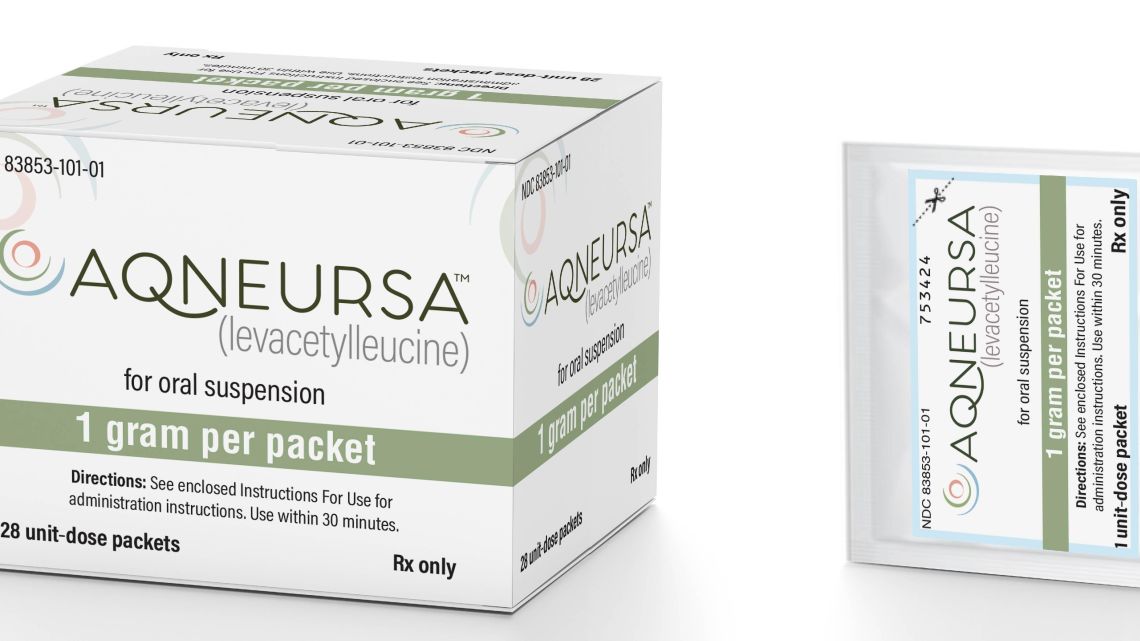

IntraBio, co-founded by Department of Pharmacology academics Professors Fran Platt, Antony Galione and Grant Churchill, ran a successful international clinical trial for a new drug Aqneursa which showed significantly improved neurological outcomes over a 12 week period for a cohort of 60 patients, aged four years and over, with a confirmed diagnosis of NPC compared to a control group. Despite the recent proliferation of Drug Discovery Units in many Universities, it is nevertheless still rare for academics to take a new molecular entity from pre-clinical to phase III clinical trials culminating in regulatory approval and marketing for patients. The first prescriptions for Aqneursa have already been written.
NPC is a rare genetic disease that results in progressive neurological symptoms and organ dysfunction. It is caused by changes in either the NPC1 or NPC2 gene, affecting the transport of cholesterol and other lipids out of the lysosome. As a result, cells do not function as they should, ultimately causing organ damage. On average, individuals affected by this devastating disease only live for about 13 years. The new drug, Aqneursa, is only the third drug approved for the treatment of NPC, including miglustat, which was the first drug to be approved for lysosomal storage diseases that was developed by the Platt laboratory.
Read the full story on the Department of Pharmacology website.
more recommended stories
 Microglia Neuroinflammation in Binge Drinking
Microglia Neuroinflammation in Binge DrinkingKey Takeaways (Quick Summary for HCPs).
 Precision Oncology with Personalized Cancer Drug Therapy
Precision Oncology with Personalized Cancer Drug TherapyKey Takeaways UC San Diego’s I-PREDICT.
 Iron Deficiency vs Iron Overload in Parkinson’s Disease
Iron Deficiency vs Iron Overload in Parkinson’s DiseaseKey Takeaways (Quick Summary for HCPs).
 Can Ketogenic Diets Help PCOS? Meta-Analysis Insights
Can Ketogenic Diets Help PCOS? Meta-Analysis InsightsKey Takeaways (Quick Summary) A Clinical.
 Silica Nanomatrix Boosts Dendritic Cell Cancer Therapy
Silica Nanomatrix Boosts Dendritic Cell Cancer TherapyKey Points Summary Researchers developed a.
 Vagus Nerve and Cardiac Aging: New Heart Study
Vagus Nerve and Cardiac Aging: New Heart StudyKey Takeaways for Healthcare Professionals Preserving.
 Cognitive Distraction From Conversation While Driving
Cognitive Distraction From Conversation While DrivingKey Takeaways (Quick Summary) Talking, not.
 Fat-Regulating Enzyme Offers New Target for Obesity
Fat-Regulating Enzyme Offers New Target for ObesityKey Highlights (Quick Summary) Researchers identified.
 Spatial Computing Explains How Brain Organizes Cognition
Spatial Computing Explains How Brain Organizes CognitionKey Takeaways (Quick Summary) MIT researchers.
 Gestational Diabetes Risk Identified by Blood Metabolites
Gestational Diabetes Risk Identified by Blood MetabolitesKey Takeaways (Quick Summary for Clinicians).

Leave a Comment